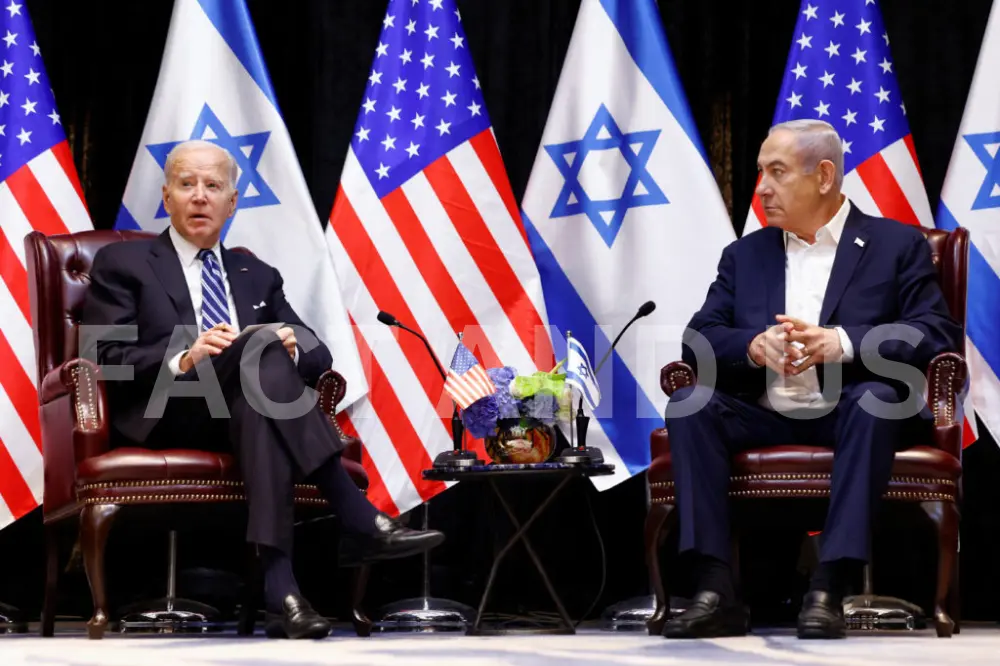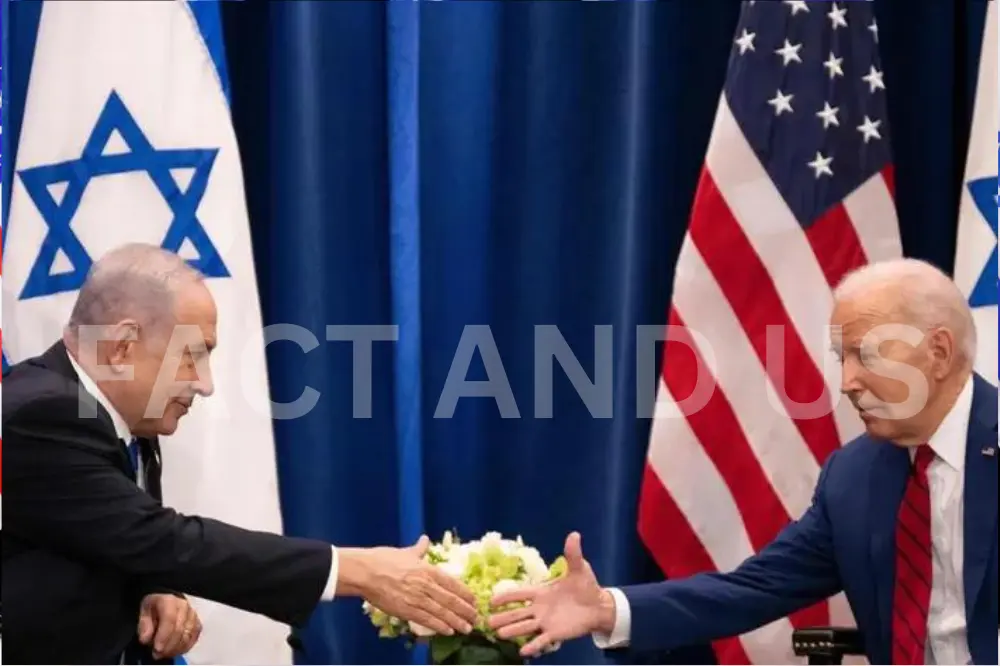Biden tells Netanyahu in a recent high-stakes conversation, President Joe Biden emphasized to Israeli Prime Minister Benjamin Netanyahu the urgent need for a ceasefire in Gaza. The call, which came amid escalating violence in the region, underscores the Biden administration’s commitment to de-escalating the conflict and pursuing a diplomatic resolution.

During their discussion, Biden conveyed the critical importance of halting the hostilities to prevent further loss of life and humanitarian crises. The President stressed that a ceasefire is not just a temporary solution but a necessary step toward achieving long-term peace and stability in the region.
Biden tells Netanyahu
The exchange between Biden and Netanyahu reflects the growing international pressure for an end to the violence that has plagued Gaza and southern Israel. With civilian casualties mounting and the humanitarian situation worsening, the Biden administration is actively engaging with key stakeholders to broker a cessation of hostilities. The office of Mr Netanyahu reiterated on Wednesday that Israel planned to keep troops in a strip of land along the border between Gaza and Egypt – known as the Philadelphia Corridor – in the event of any such deal.

“Israel will insist on the achievement of all of its objectives for the war, as they have been defined by the security cabinet, including that Gaza never again constitutes a security threat to Israel. This requires securing the southern border,” a statement said. The issue has become a key sticking point – with Hamas so far insisting on a total withdrawal of Israeli troops from Gaza. Egypt also opposes the presence of Israeli troops along its border with Gaza.
On Monday, US Secretary of State Antony Blinken said Israel had agreed to a “US bridging proposal”, after a three-hour meeting with Mr Netanyahu in Jerusalem Blinken would not confirm to the BBC whether the US proposal stipulated the withdrawal of Israeli troops from the Philadelphi corridor, but Mr Netanyahu’s repeated public insistence on the plan appears to have irritated Washington.


A US official accused the prime minister of making “maximalist statements” that were “not constructive to getting a ceasefire deal across the finish line”. A new round of ceasefire talks is set to take place in Cairo this weekend, with US, Israeli, Egyptian and Qatari representatives in attendance. Hamas has so far not said they will attend, but it is believed they are continuing to receive updates on the negotiations from Egyptian and Qatari mediators.
A member of the Hamas political bureau told the on Monday that the group had “agreed a deal [through mediators] on 2 July” and therefore “don’t need a new round of negotiations or to discuss the new demands of Benjamin Netanyahu”. “We have shown maximum flexibility and positivity,” Basem Naim said. He claimed that Mr Netanyahu was “not interested in reaching a ceasefire, only in flaring up the region… and serving his own personal political interests”.

In Gaza on Wednesday, at least 50 Palestinians were killed by Israeli air strikes, Hamas-run health authorities said. The Israel Defense Forces (IDF) said it hit around 30 targets across the territory, including tunnels, launch sites and an observation post. The targets included the UN-run Salah al-Din school in Gaza City, which the IDF said was used by “Hamas operatives” as a “hideout”. The strike killed at least four people and wounded 15, the Hamas-run Civil Defence service said.
Philippe Lazzarini, head of the UN’s Palestinian refugee agency, said that children were killed in the strike and some were “burnt to death”. “Gaza is no place for children anymore. They are the first casualty of this merciless war,” he said, adding that “a ceasefire is beyond overdue”. This development comes at a time when the global community is increasingly concerned about the escalating conflict. The U.S. has been working closely with allies and regional partners to encourage dialogue and find a viable path to peace. Biden’s direct intervention highlights the administration’s proactive approach and its role in supporting a resolution to the ongoing crisis.

As diplomatic efforts intensify, the hope is that a ceasefire agreement will pave the way for more comprehensive negotiations aimed at addressing the underlying issues driving the conflict. The Biden administration’s engagement is a testament to its commitment to promoting stability and supporting humanitarian relief in one of the world’s most volatile regions.
The situation remains fluid, and the international community is closely watching developments. The President’s appeal to Netanyahu marks a significant moment in the diplomatic push for peace, underscoring the urgent need for action and the role of global leadership in addressing such critical issues.
Stay connected with Fact and US for more such news.
